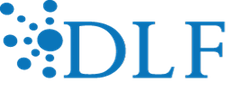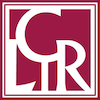Hello! 👋 We're thrilled that you are interested in Endangered Data Week! The material here are training, workshop, and promotional material for you to host your own events either during the official week (February 25—March 1, 2019), or anytime you wish to run workshops related to data that is at risk of being lost, repressed, or neglected.
All of the training material here is provided by the community and you should feel free to reach out to workshop creators, submit your own workshops, submit pull requests to existing workshops, or reach out to the Open Project Leads with any questions.
In the wake of the 2016 US presidential election, librarians, civic hackers, technologists, cultural heritage institutions, journalists, and citizen scientists grew increasingly concerned that government data—particularly data related to topics like climate change, gerrymandering and redlining, and other politically charged subjects—might be threatened through censorship or neglect. Initiatives have sprung up throughout the country, spearheaded by groups like DataRefuge, the Environmental Data & Governance Initiative (EDGI), and the End of Term Web Archive, that attempted to collect, secure, and document government data. The vulnerability of these data underscored the need for quick action on the one hand, and sustained attention to the mechanisms that support (or fail to support) preservation and access to government data, information, and records on the other.
Endangered Data Week (EDW) is an annual, collaborative effort, coordinated across campuses, nonprofits, libraries, citizen science initiatives, and cultural heritage institutions, to shed light on public datasets that are in danger of being deleted, repressed, mishandled, or lost. EDW, supported by the Digital Library Federation (DLF), fosters public conversations about data and encourages the development of reusable curricula for engaging technologists, scholars, librarians, archivists, faculty, students, journalists, nonprofits, and citizens on questions relating to the acquisition, manipulation, visualization, use, and politics of public data.
The project, however, exists beyond the week itself. This repository is a collection of curricular material, resources, promotional material, and stories that help promote care for threatened data by:
- publicizing the availability of datasets
- increasing critical engagement with them, including through visualization and analysis
- encouraging political activism for open data policies and the fostering of data skills through workshops on curation, documentation and discovery, improved access, and preservation.
We are an open source project. Want to help contribute? Are there issues, topics, or projects you feel Endangered Data Week needs to tackle? Open up an issue. Or, contribute your ideas, resources, and teaching material! To get started, take a look at CONTRIBUTING.md.
| Workshop | Creator | Notes |
|---|---|---|
| Data Manipulation with R | Jason Heppler | CC-BY |
| Data Visualization with R | Jason Heppler | CC-BY |
| Introduction to Github | Jason Heppler | CC-BY |
| Web Scraping with R | Jason Heppler | CC-BY |
| OpenRefine for Complicated Civic Data | Brandon Locke | CC-BY |
| Collect & Prep Your Data for Visualization and Analysis | Anna Kijas and Sarah Melton | CC-BY |
| Talk | Speaker | Notes |
|---|---|---|
| Brief Introduction to Civic Data | Brandon Locke | CC-BY |
| Environmental Data Activism under the Trump Administration | Lindsey Dillon | CC-BY |
| What is Endangered Data? | Jason Heppler | CC-BY |
| Resource | Description |
|---|---|
| Data advocacy and letter writing campaigns | Resources on promoting open data policies. |
| Data Rescue | Resources related to Data Rescue events. |
| Endangered Data Workshop | Resources on locating endangered data. |
| VPN Crypto resources | Resources for running crypto and VPN events. |
- EDW logo & tiled background design
- Save the Date postcards
- Print your own stickers
- Make your own buttons
- Postcards to advocate for open data policies
Endangered Data Week is committed to creating and supporting an inclusive community of practice. Please see our Code of Conduct.
Jason A. Heppler
University of Nebraska at Omaha
@jaheppler
Brandon T. Locke
@brandontlocke
Rachel Mattson
University of Minnesota
@captain_maybe
Sarah Melton
Boston College
@WorldCatLady
This project exists thanks to all the people who contribute (emoji key) [Contribute]:
Jason Heppler 💻 📖 💁 ✅ 🎨 👀 |
Brandon Locke 📖 💁 💡 ✅ 🎨 👀 |
Sarah Melton 📖 💁 👀 |
Rachel Mattson 📖 💁 👀 |
Bethany Nowviskie 🎨 🚇 |
Wayne Graham 🎨 🚇 💻 |
Manasvi Lalwani 🎨 💡 |
|---|
Daniel Mietchen 🔧 |
David Bleckley 🔧 💡 |
Madison Sullivan 🔧 |
Joseph Koivisto 🔧 |
B. Shine Cho 🔧 🌍 |
Jamie Wittenburg 🔧 |
Chad Sansing 🎨 💡 🔧 |
|---|
Chris Goodman |
|---|
This project follows the all-contributors specification. Contributions of any kind welcome!




